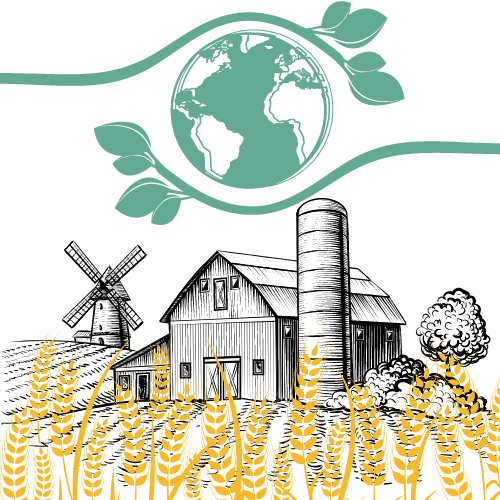The Reimagine Project:
Building a high-functioning transdiscipinary team culture
The Western Great Plains, North America’s largest remaining grassland, sustains crucial livestock-based food production. However, climate change poses a significant threat to this ecosystem and industry, potentially causing substantial shifts in livestock farming, ecology, and economics. With pilot funding, this CSU team collaborated with ranchers, conservation groups, industries, and communities to address these challenges. Their primary goal was to develop a community-centered framework for implementing sustainable livestock practices, fostering rural resilience, and cultivating robust communities and economies.
The Reimagine Project emphasized the importance of broadening research team membership by integrating social scientists, data scientists, and engineers into agricultural-focused problem-solving efforts in response to escalating climate change impacts. By specifically examining the connections between livestock production, soil health, methane emissions, and carnivore conflicts, this project transformed team-building practices into actionable strategies. It aimed to establish future research teams equipped to effectively address agricultural transformations driven by climate change.
Who was the Research Team?

What did they do?
The Reimagine Project focused on team-building efforts to plan for the future of forming interdisciplinary research teams focused on agricultural practices as the climate continues to change. Efforts to form teams included:
- Institute for Research in Social Sciences facilitated team ideation sessions
- Identified potential contributors across CSU networks
- Held meetings throughout the academic year focused on team formation for sustainable grazing practices
- Collected team data and input on the connection between soil health, carnivore conflict, livestock production, and methane emissions
Success as a Result of Pilot Efforts
- $120,000: Rural Engagement Initiative
- $75,000: Warner College of Natural Resources Transdisciplinary Award: A One Health Transdisciplinary Approach to Human-Wildlife Co-existence
- $450,000: NFWF Grant in Partnership with CCA
- $2.3 million: USDA CIG Grant



